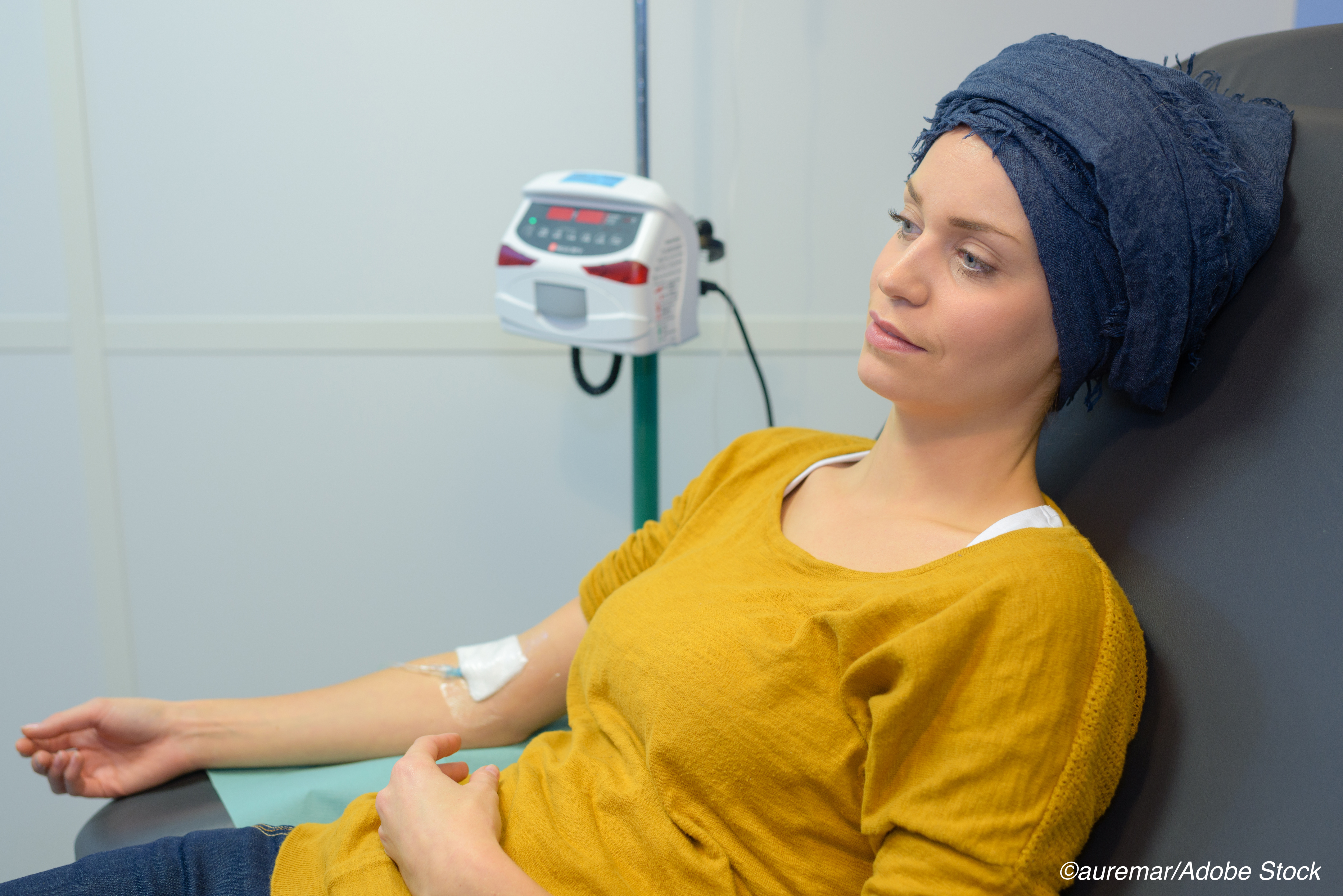Three to five years of adjuvant bisphosphonate using zoledronate for patients with high-risk early breast cancer afforded patients no more survival benefit than two years of treatment in patients with high-risk early breast cancer, according to a study published in JAMA Oncology.
Based on these results, researchers suggested reducing the bisphosphonate treatment duration recommended in current clinical guidelines for breast cancer treatment.
“Guidelines and reviews have been published to aid clinicians on the use of bisphosphonates for patients with [early breast cancer] EBC in clinical practice. Currently, there is general consensus that adjuvant bisphosphonates should be given to postmenopausal patients with EBC who have any indication for systemic therapy. However, although guidelines recommend that bisphosphonates should be administered for 3 to 5 years, it is acknowledged that the optimal duration of adjuvant bis[1]phosphonate treatment has not yet been determined,” wrote Thomas W.P. Friedl, PhD, University Hospital Ulm, Germany, and colleagues.
The study included data from 2,987 patients (median age: 53 years) enrolled in the SUCCESS A study, a phase III, multicenter, randomized, open-label trial. Patients had either node-positive or high-risk node-negative primary invasive breast cancer. After primary breast-conserving surgery or modified radical mastectomy with R0 resection, patients were first randomized to adjuvant chemotherapy comprised of three cycles of fluorouracil, epirubicin, and cyclophosphamide, followed by three cycles of docetaxel with or without gemcitabine. In a second randomization, patients were treated with five years of zoledronate (4 mg IV every three months for two years, followed by 4 mg IV every six months for three years) or two years of zoledronate (4 mg IV every three months for two years).
Upon adjusted, multivariable Cox proportional hazard regression modelling, Friedl and colleagues found no significant differences between the two treatment arms in disease-free survival (DFS; HR: 0.97; 95% CI: 0.75-1.23; P=0.81), overall survival (OS; HR: 0.98; 95% CI: 0.67-1.42; P=0.90), or distant disease-free survival (DDFS; HR: 0.87; 95% CI: 0.65-1.18; P=0.38).
Researchers also assessed circulating tumor cell (CTC) status after five years in 714 patients. At least one CTC was found in 10.5% of patients treated for five years, compared with 7.2% of those treated for two years, but the difference was not significant (Х2 test, P=0.14).
The incidence of bone recurrence as the first distant recurrence was similar between the two treatment groups. Of 53 of these bone recurrences, 25 occurred in those treated with five-year zoledronate, compared with 28 in those treated with two-year zoledronate.
Patients treated for five years experienced more adverse events compared with those treated for two years (46.2% vs 27.2%, respectively), especially skeletal-related bone pain (8.3% vs 3.7%) and arthralgia (5.1% vs 3.1%), which were the most common adverse events in both treatment groups.
“There is clearly a lack of data regarding the optimal adjuvant treatment duration of bisphosphonates. To our knowledge, the SUCCESS A trial reported herein is the first randomized clinical trial filling this gap. The results of this large, multicenter phase 3 trial indicate that there is no benefit with regard to DFS, OS, and DDFS for extending adjuvant zoledronate treatment beyond 2 years in patients with high-risk EBC receiving chemotherapy, independent of their menopausal status. Furthermore, there was no statistically significant difference between 5 and 2 years of zoledronate treatment with respect to bone recurrences as first distant recurrence,” concluded Friedl and colleagues.
They also suggested that current clinical guidelines that recommend three to five years of adjuvant bisphosphonate treatment for patients with high-risk, early breast cancer “could be reduced.”
In an accompanying editorial, Alexandra Desnoyers, MD, and colleagues from Princess Margaret Cancer Center, University of Toronto, Ontario, Canada, agreed with this suggestion.
“While limitations such as inclusion of premenopausal women not receiving ovarian suppression and low event rates may have influenced the observed outcomes in SUCCESS-A, it is unlikely that a substantial difference would have been observed in the absence of these limitations. In light of this, and the modest outcomes of bisphosphonates compared with no bone-targeted therapy in historical trials, an important question needs to be answered: in a contemporary breast cancer setting in which DFS events are infrequent, what, if any, is the benefit from adjuvant bisphosphonates? It is time to reevaluate the guidelines,” they wrote.
Other study limitations included the use of adjuvant chemotherapy only in patients with high-risk early breast cancer, differing dosing schedules of zoledronate used outside of the study, limited median follow-up, the low number of adverse events, and the loss of more patients to follow-up in the two-year arm. Finally, researchers noted, “the study was not specifically powered for the landmark-approach-based analysis for the comparison of DFS in patients receiving 5 vs 2 years of zoledronate treatment.”
-
Results from the SUCCESS A trial suggest that the recommended three to five years of adjuvant bisphosphonate treatment for patients with high-risk early breast cancer, as published in current clinical guidelines, could be reduced.
-
Researchers found no statistically significant difference in survival between five and two years of adjuvant zoledronate treatment in patients with high-risk, early breast cancer, irrespective of menopausal status.
Liz Meszaros, Deputy Managing Editor, BreakingMED™
The SUCCESS A study is an investigator-initiated trial, in part supported by grants from AstraZeneca, Chugai, Menarini Silicon Biosystems (formerly Veridex), Lilly, Novartis, and Sanofi-Aventis.
Friedl has received honoraria from Novartis outside the submitted work.
Desnoyers has received personal fees from Pfizer and Viatris outside the submitted work.
Cat ID: 22
Topic ID: 78,22,730,22,691,192,925



